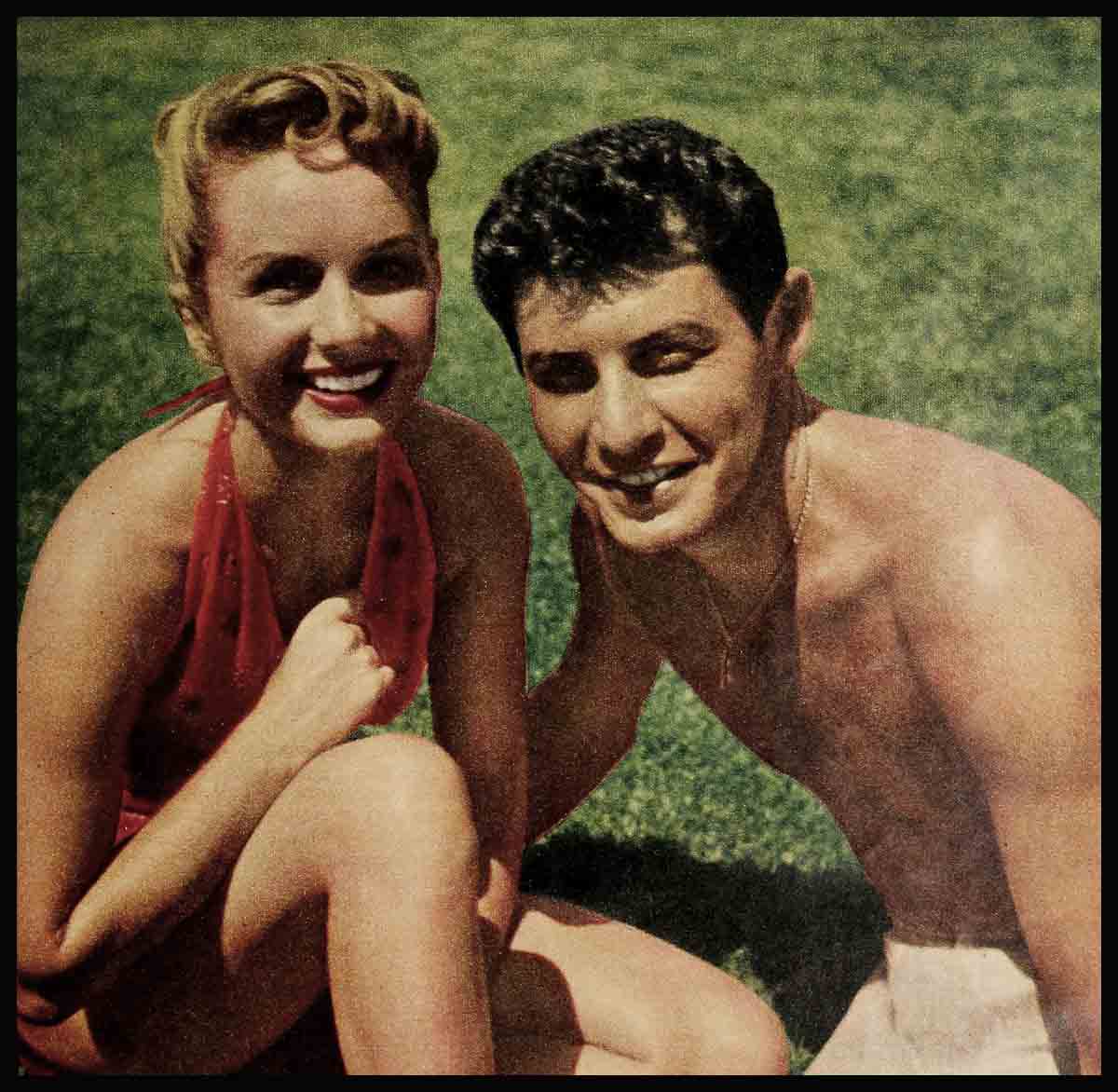
She Looks Like A Bride—Eddie Fisher & Debbie Reynolds
Are Eddie Fisher and Debbie Reynolds married?
There is no point any longer in asking if they plan to be married. Any eye which fell on them during Eddie’s trip to Hollywood, before he took his European vacation, any ear which caught their words to each other, saw and heard enough to clinch the fact that matrimony was in the air.
“You’ve got a career started and I wouldn’t want to interfere with it,” Debbie said one day at a Beverly Hills gathering when someone kidded both of them about seeing a minister.
Eddie came back quickly and earnestly. “The best thing about my career is meeting you,” he said.
The ordinarily blithe Debbie, who has no trouble fluffing off a compliment when the fellow doesn’t mean anything, turned as rosy as the tomato-colored shirt she was wearing (with matador pants) and started tripping over her consonants before she was able to reply.
“That’s different,” she said. “Maybe it won’t be interference then.”
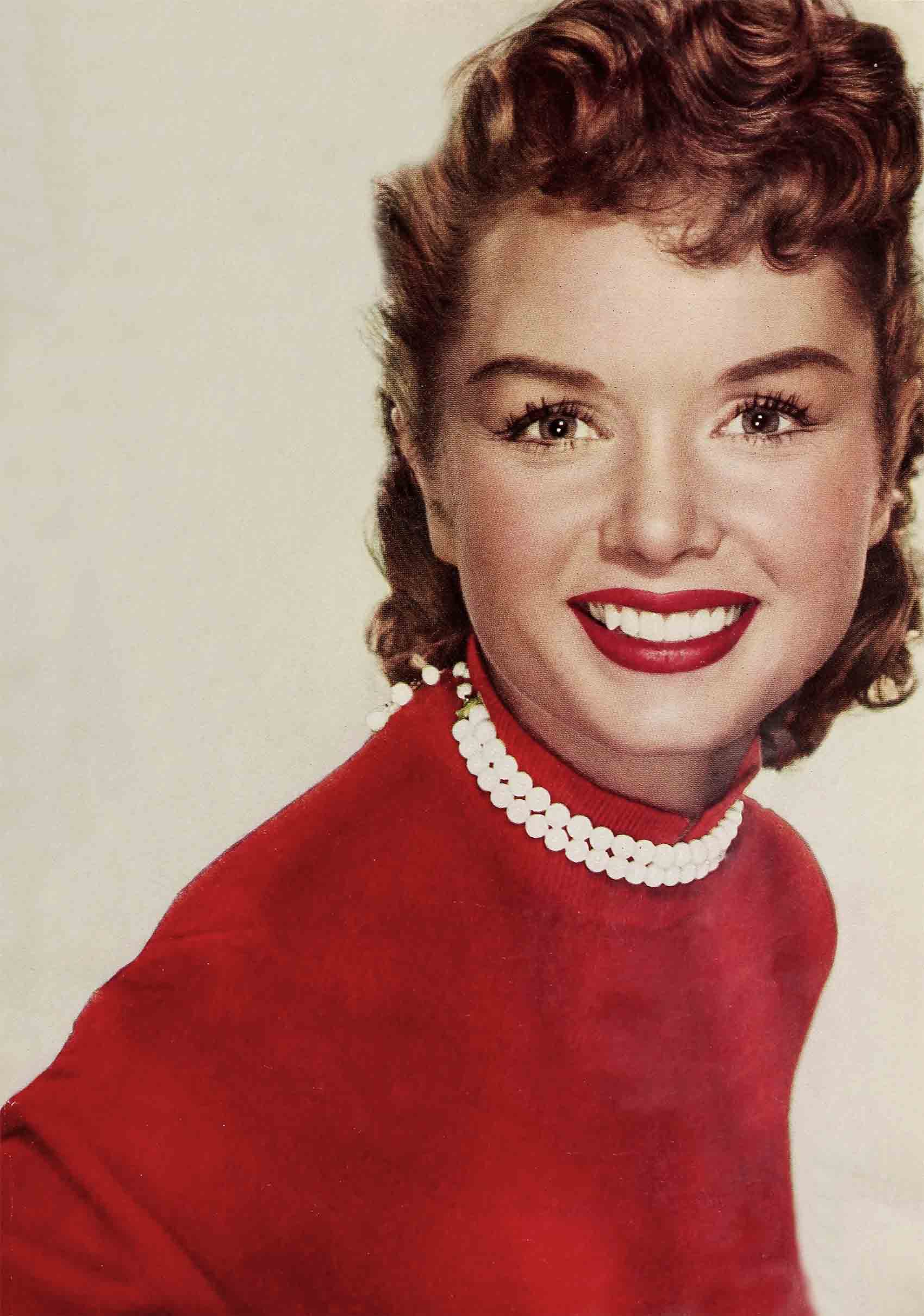
It wasn’t long after this exchange that Debbie and Eddie met in New York—with both their mothers. At the airport Debbie was in her old form when she was questioned about Eddie. Her replies were quick and easy, but not exactly answers. But when she started back to California, Debbie was wearing a new ring and planning a wedding, probably to be in January in California.
About that interference, maybe they could be wrong. Back of Eddie stand men who have helped him to success and for whose show business judgment he has great respect (much more than he has for his own, as he will frankly admit) and even as they insist that they are open minded about Eddie’s acquiring a wife, the possibility of it makes their faces set in grim lines.
“You never can tell about the reaction of feminine fans to a young romantic singer who is no longer eligible,” said one representative of Eddie’s management group. “The women don’t seem to hold the more mature crooners, Crosby, Como or Sinatra, personally responsible for the sentiments expressed in the lyrics of their songs. Or if they do, these older fellows have been around long enough to develop a following strictly on the basis of the music in their voices rather than on personality alone. But when a youngster like Eddie sings about the loneliness and heartbreak that is so often the subject of ballads, he is much more convincing if he is single. After all, married men are not supposed to be lonely!”
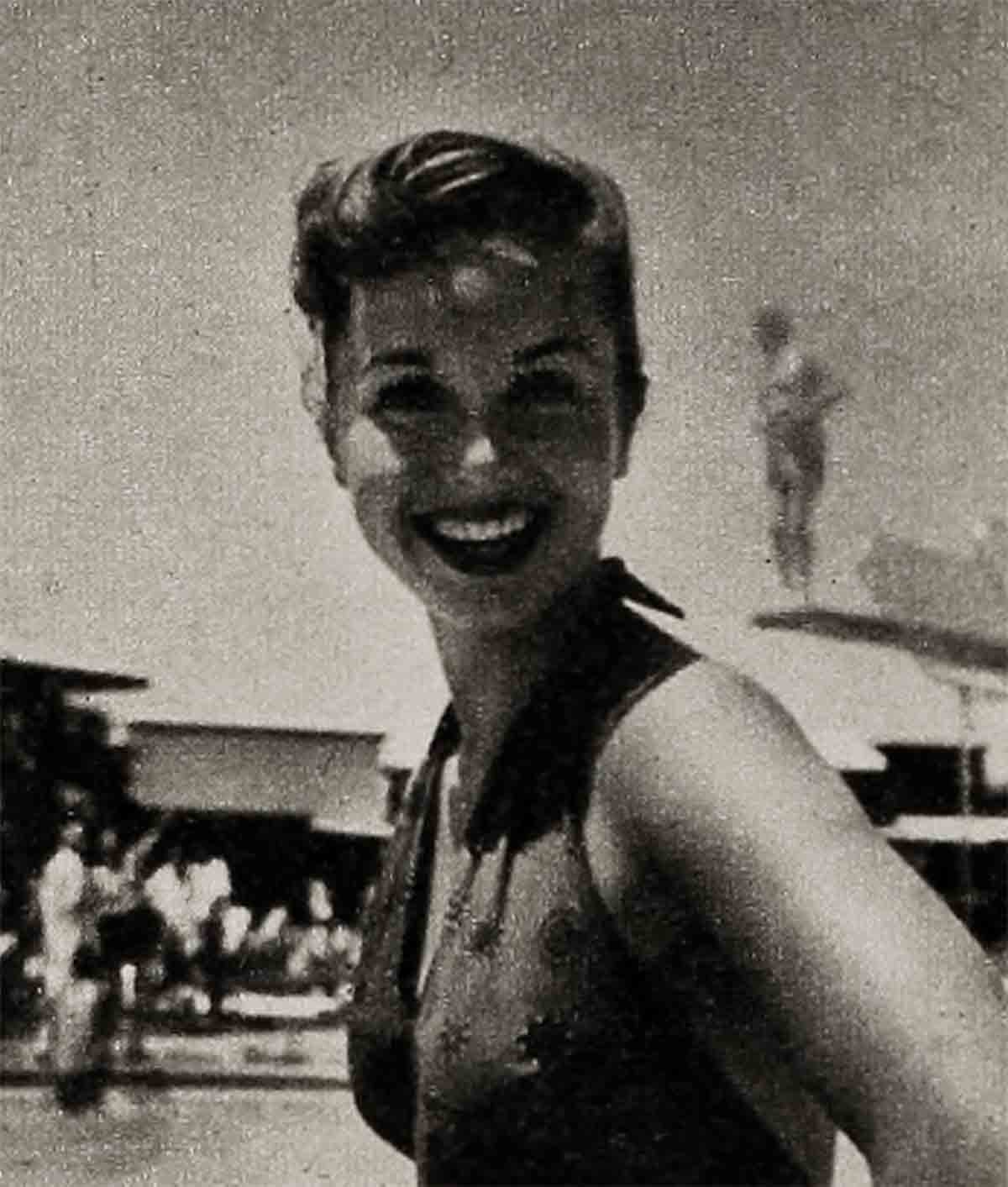
This psychological notion about the girls who make up the bulk of his audiences is something Eddie is well aware of; so are his friends, and of course Debbie knows about it. She is strongly career-minded, having many times said she must get her Own career going before she thinks of marriage. She still talks like that even though, with her success in Susan Slept Here and the great work she is doing in Hit The Deck at MGM, there is no doubt about the firm status of her stardom. And it is a safe bet, too, that if she marries Eddie, theirs will be a double star family. Debbie won’t abandon her career.
“I’m a working girl, you know, and I probably always will be,” she told him late one afternoon when he laid plans for a great evening and she begged off so she could rest for an early studio call.
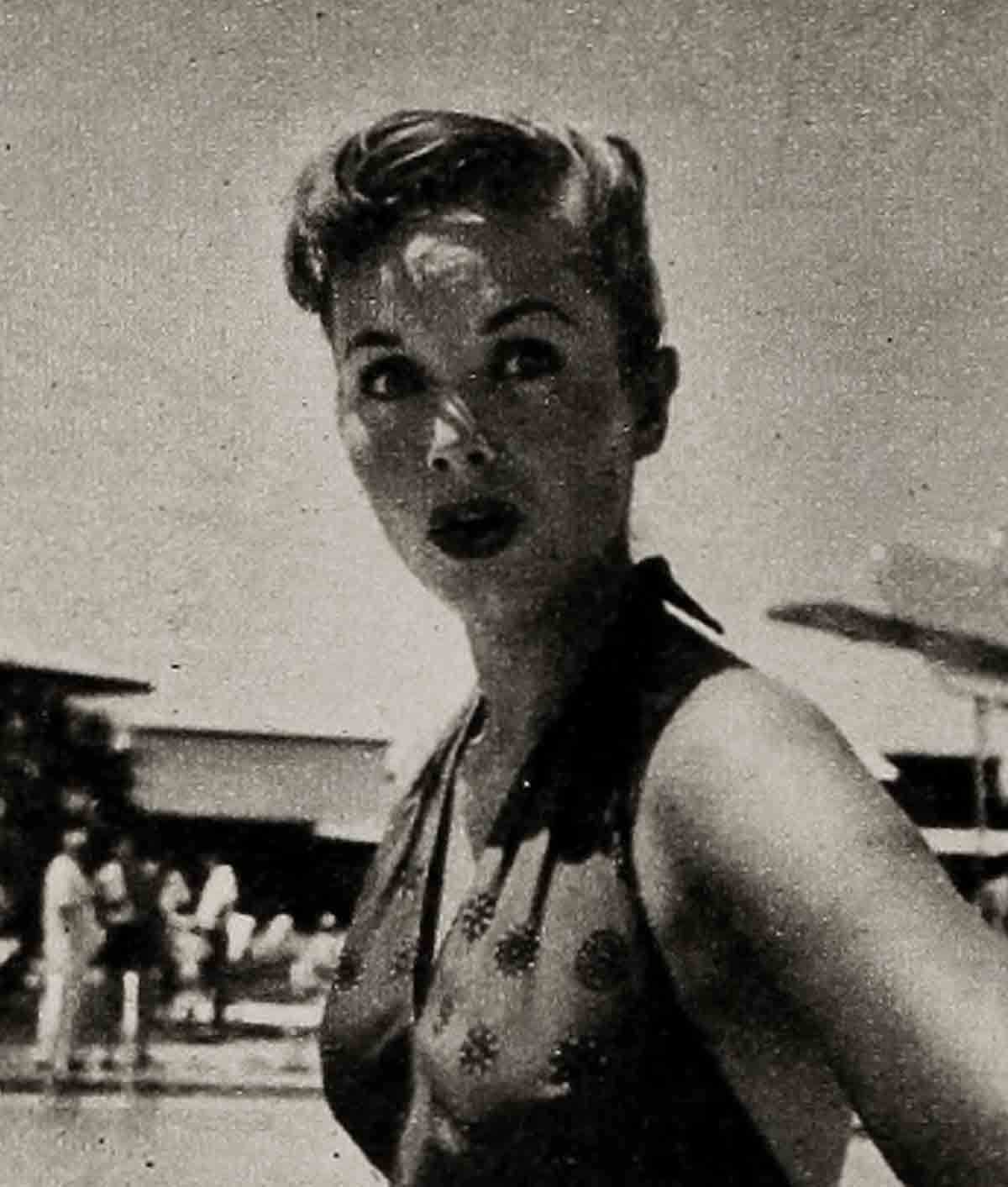
Few young couples who are altar-bound can keep from revealing their plans in one way or another. So much like a loyal and dutiful young wife has Debbie acted toward Eddie, and so close to the attitude of a young bridegroom does his become sometimes, that a report claiming they have already secretly eloped has got a lot of credence. Probably those who do believe this are the type who not only are quick to add fact to rumor, but often multiply the one by the other. Yet if you were at the Hollywood Bowl the night Eddie sang there, or at the Mocambo on an early morning date with them as he crooned in Debbie’s ear on the dance floor, or heard their dialogue the dozens of times she “dropped in for a minute” to see Eddie and was still having her hand held by him hours later . . . you would admit that the best description was “newlyweds.”
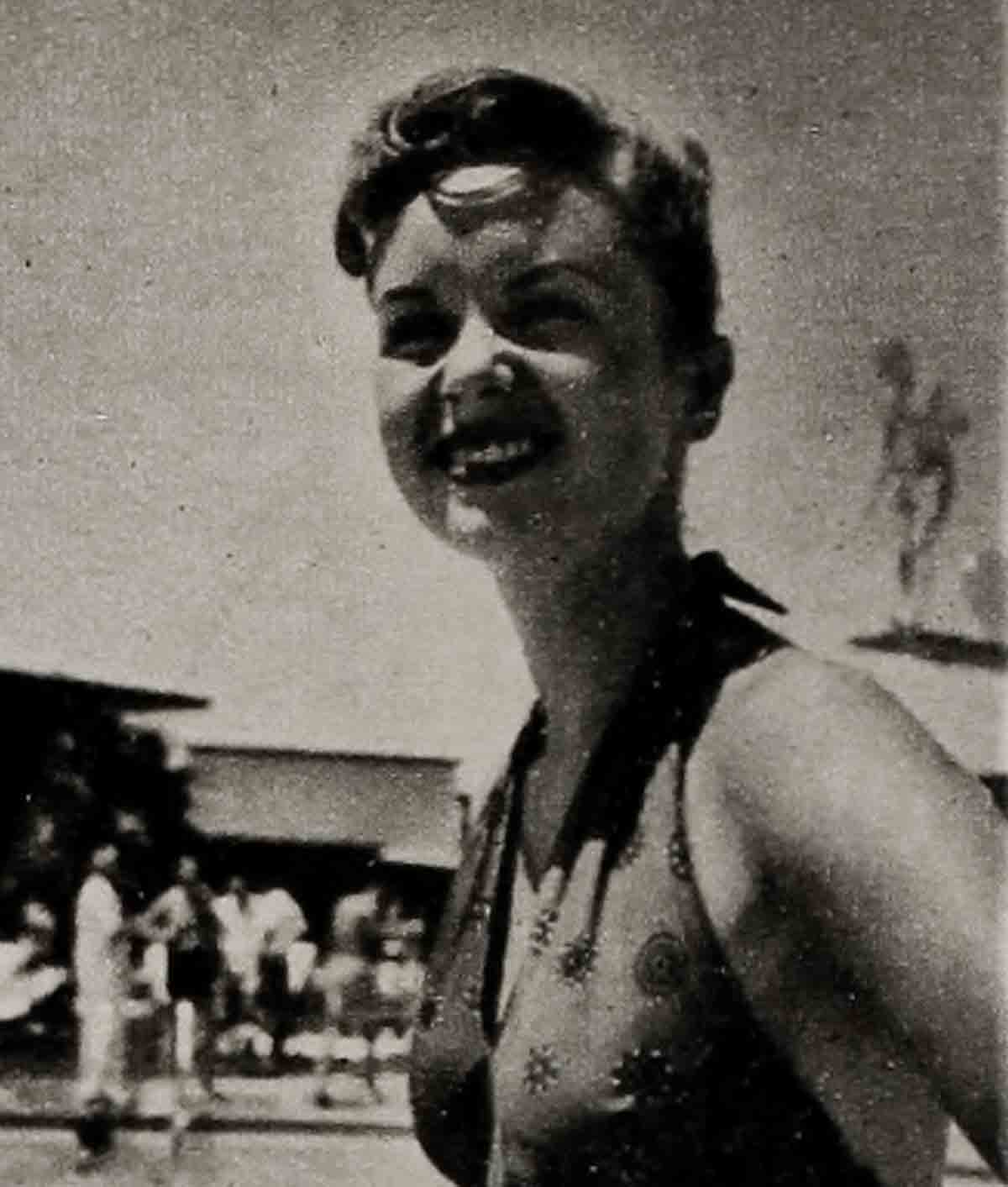
All summer, when they didn’t happen to have a formal date they had a little informal routine that picked up the slack in this phase of their romance. The big white mansion Eddie lived in was on the Coldwater Canyon route Debbie always used driving home from the studio. You could always tell when Eddie was in because he never parked his black Cadillac in the garage—always in the driveway right at the front door. It is doubtful if on her way home after work Debbie once drove past that “standing” invitation to drop in. She would pull up behind the Cadillac in her salmon and cream Pontiac, slip inside the main hall of the house and peek through the back windows to the pool in the yard. That was all she had to do. Eddie, whose eyes are as sharp as his singing notes are true, would jump up from whatever he was doing (usually lounging in the sun) and run to get her.
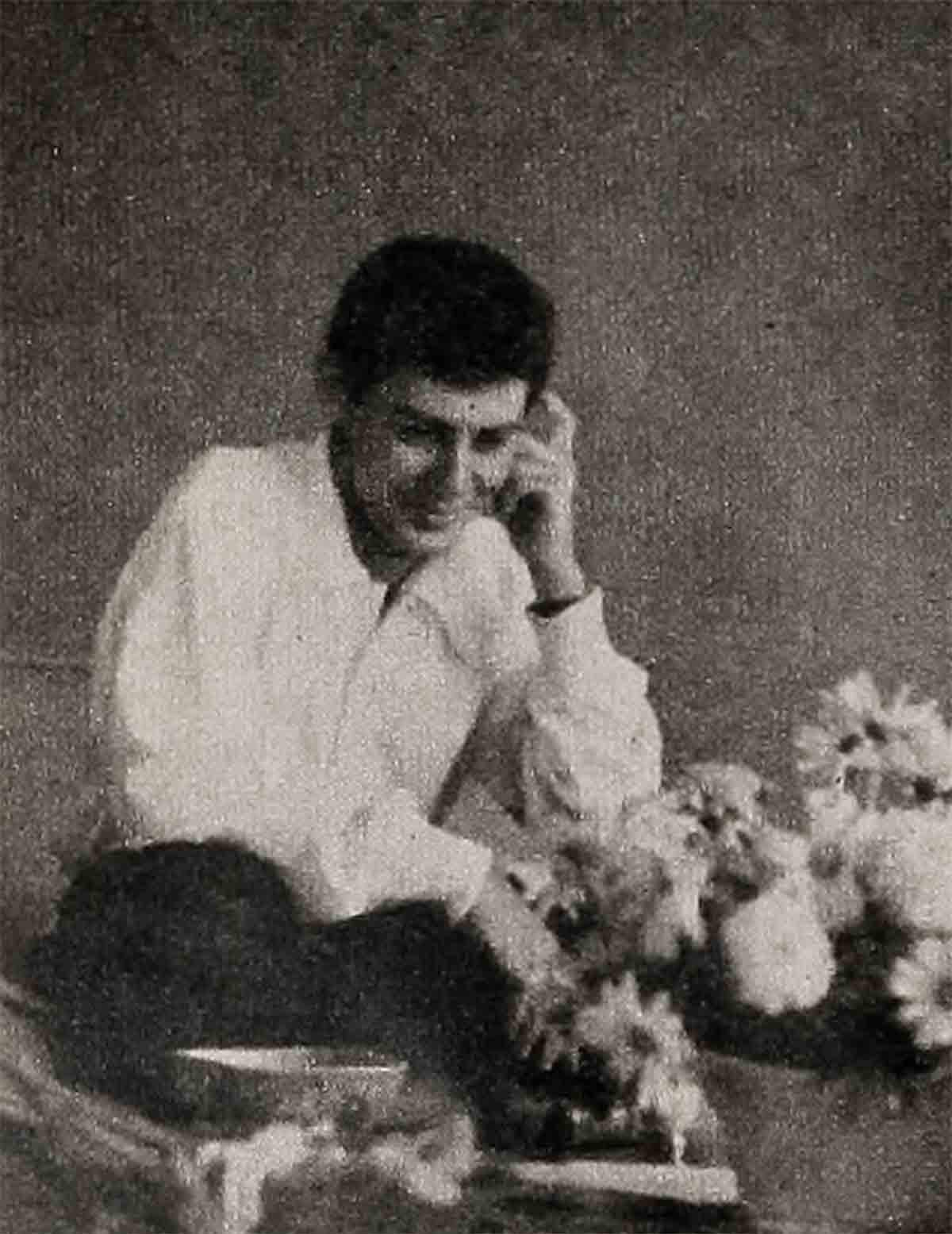
Then would begin the business about her being able to stay only a little while. Eventually, to hold her around, Eddie began to use counter-strategy. He would claim that the drive home would be too much for her unless she had something to eat before she started. Or else he would insist that if she loved him she would go into the pool with him. “Isn’t it true,” he asked her one such evening, “that this is the best time to swim in California? Just before dinner?”
Debbie replied that this was true of the San Fernando Valley, where she lived, but she didn’t know about the fancier Beverly Hills area where his house was. But she did stay around and that was the big idea.
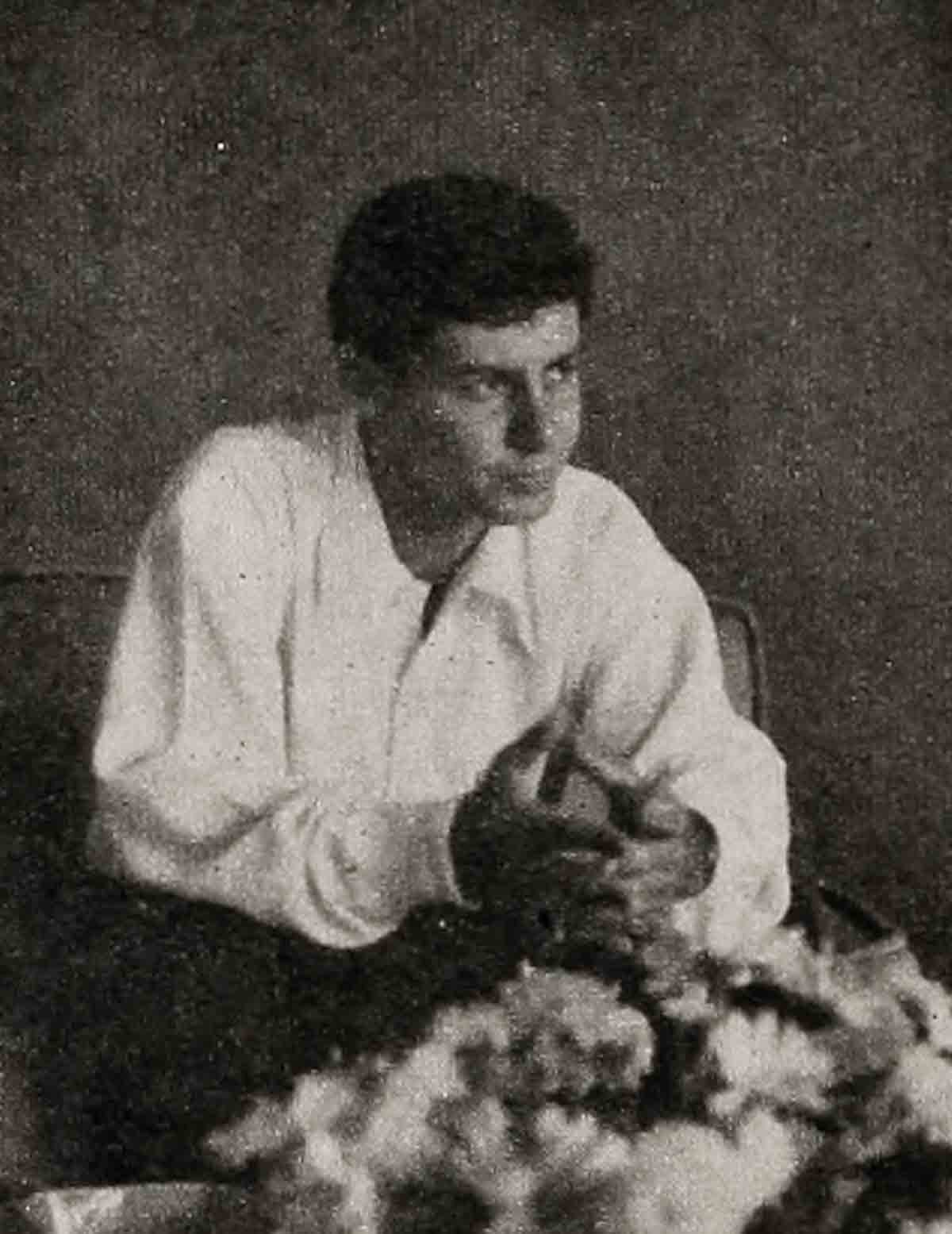
You couldn’t be blamed for thinking that Debbie acted very much like a conscientious wife and daughter-in-law if you saw her the night of Eddie’s concert at the Bowl. Eddie got the best seats in the place, Box No. 32, for Debbie and her parents; center and smack in front of the stage. Debbie’s folks were in it, all right. But not Debbie. She quietly walked to another box where Eddie’s father, Joseph Fisher, was all alone, and sat with him.
Before the concert began she was backstage with her folks and they all gave Eddie their good wishes, Debbie sealing them with a kiss—and re-sealing them several times. And Debbie came back again after the show, of course, and you could tell it meant a lot to Eddie. After which Debbie went even further and revealed a fine understanding of the professional niceties involved in the event. She took a chair out of everyone’s way—and let the rest of the world come and deliver accolades to the young artist.
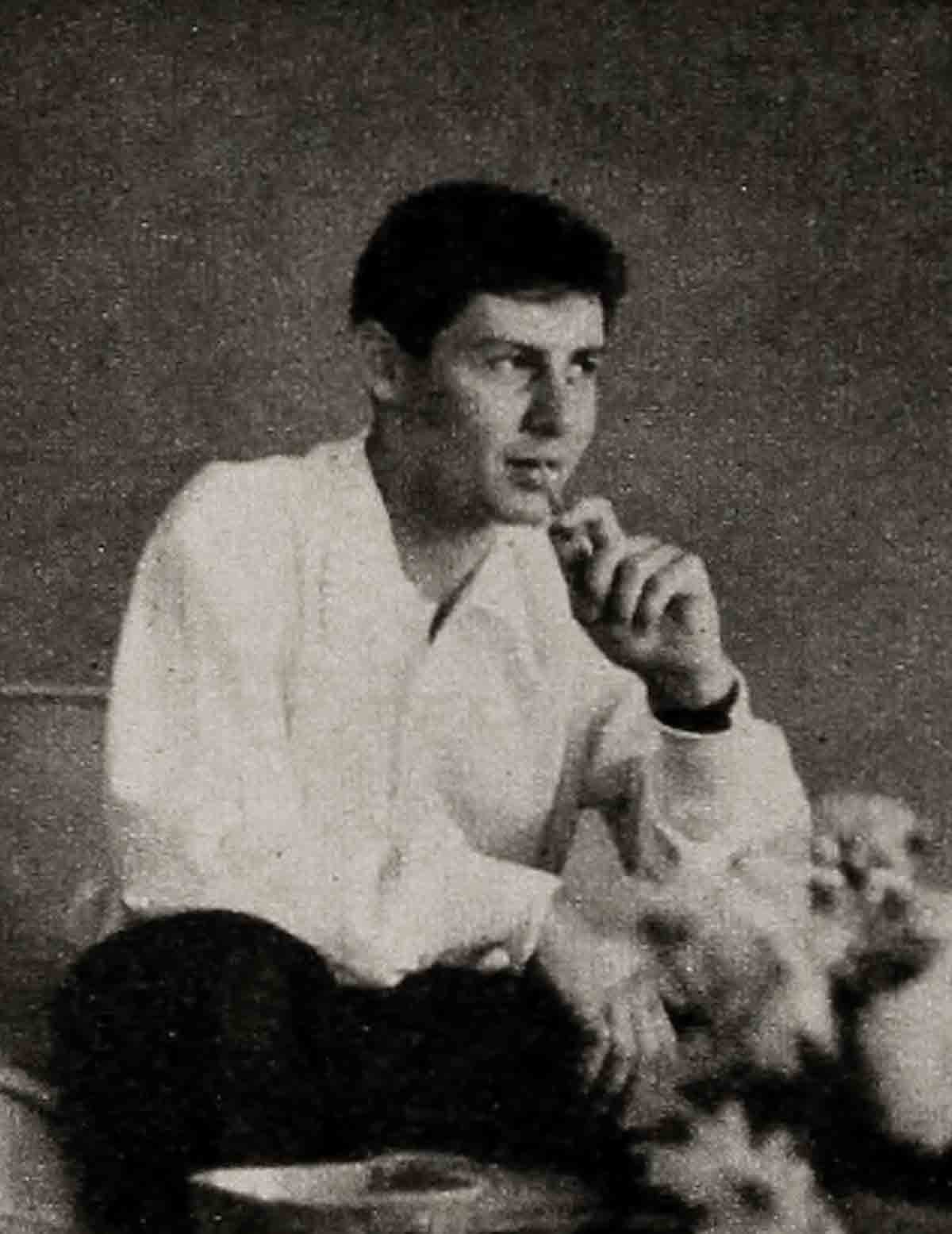
Besides other singers, actors, musicians, managers, songwriters and producers who trooped into Eddie’s dressingroom to congratulate him, a whole girls’ club had somehow wangled permission to get autographs en masse. They lined up to see Eddie. At this, Debbie, for fear she might be recognized and thus intrude on his big night, shifted further into the shadows to be sure no one would recognize her.
Eddie had sung some of Irving Berlin’s songs at the concert and there are plans for him to do Berlin’s life on the screen. When the famous songwriter came back stage he wanted to take Eddie out for the evening. Eddie ran to get Debbie.
There were others in Irving Berlin’s party that night but, except for rare moments, it was a twosome as far as Eddie and Debbie were concerned.
“You’ve got a real flip girl there,” Berlin said to Eddie once, as they took seats at a Mocambo table.
“Yeah, she comes up with the good ones,” Eddie agreed.
Up to that particular period in the evening Debbie had been talkative. But a little later when they were on the dance floor, and Eddie was singing to her, she was a girl existing in rapt silence.
“They were really sufficient unto each other that night,” said a friend of the pair who was there that evening. “Believe it or not they had one drink—a soft drink—between them from the time they came in until they left. One drink and two straws. If it weren’t for their evening clothes they would have looked like small town kids on a soda fountain date.”
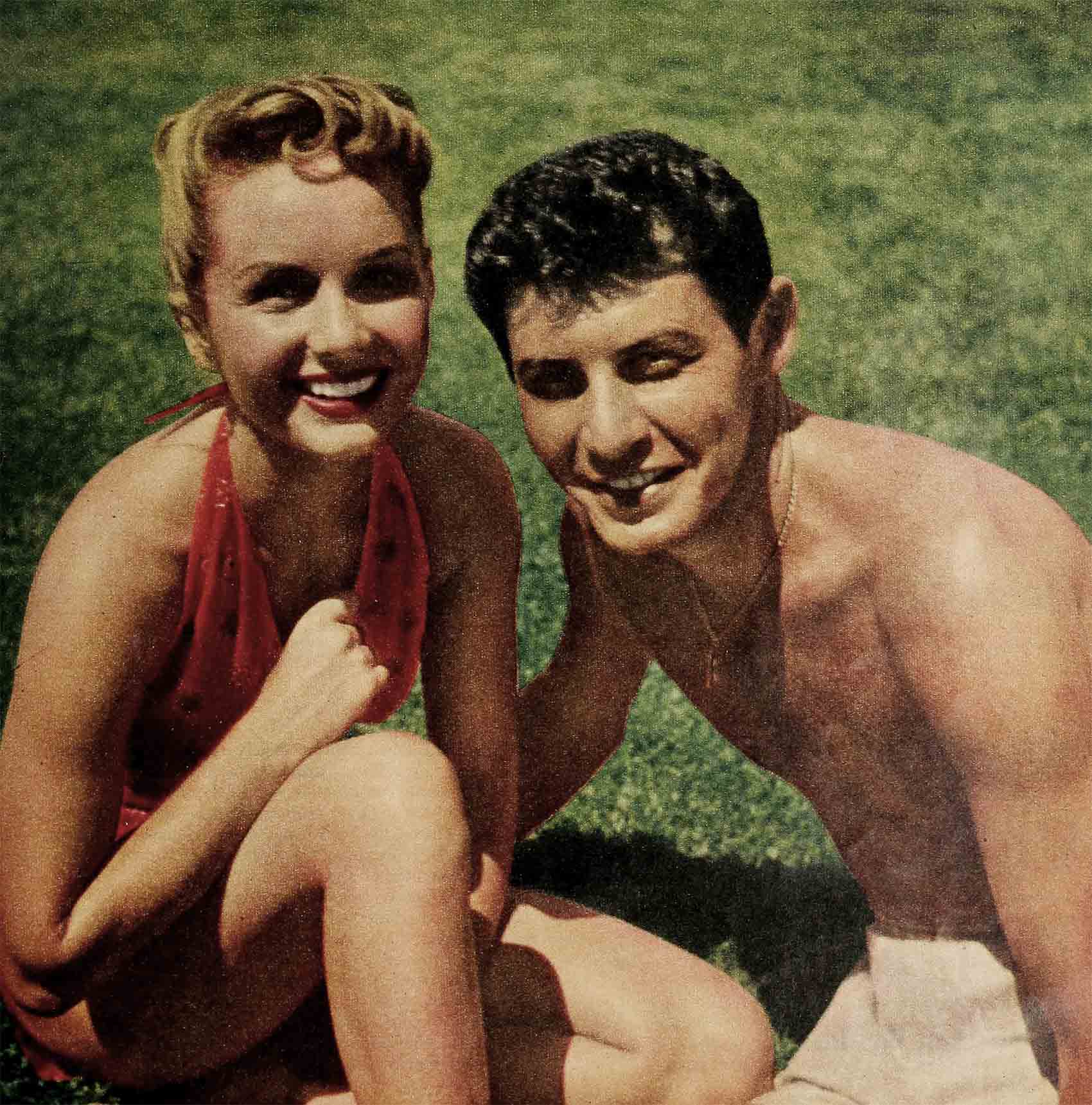
Eddie’s birthday gift from Debbie was a pair of gold cufflinks inscribed, “A wonderful thing happened today—you.”
Almost everyone Eddie meets seems to think it important to point out his youth to him (he’s twenty-five) and emphasize that he has a great future if he doesn’t make any false moves. No one tells him to his face that marriage would be a mistake but it is plainly the general idea. Eddie, a kid who hasn’t had an easy life (although he always says, “It was okay with me having been poor; I didn’t know any different”), sometimes gets fed up on this trend of conversation. And he often can be heard unconsciously trying to create the impression that he is older than his years.
“I bet you think I haven’t been around much,” he said to Irving Berlin once, “but how about this song?” And he sang one of Berlin’s own numbers, written so long ago that Berlin barely recalled it.
“You weren’t even born yet, when I wrote that one,” Berlin said.
“Well, I grew quick,” Eddie replied.
He is also a little sensitive about complaints that his tremendous success has so complicated his life with an endless round of rehearsals, shows, interviews and conferences that nobody can get in to see him. He can’t forget that for most of his life nobody ever wanted, to get to him.
He was a judge on Peter Potter’s Juke Box Jury TV program in Hollywood last summer when Donald O’Connor guest-sang a song published by O’Connor’s firm.
“That’s the kind of song I would have liked to do last season on my Coca-Cola program,” Eddie commented.
“Why didn’t you?” Potter wondered.
“Nobody asked me,” Eddie replied.
Potter turned to O’Connor and asked him why he hadn’t brought the song to Eddie’s attention since its use by Eddie would help make it a hit.
O’Connor raised helpless hands. “How do you get to Eddie?” he asked. “You have to climb over people.”
The others laughed but there was truth to Donald’s excuse and Eddie was a bit embarrassed. For a simple boy from south Philadelphia the high levels of the amusement world to which he has ascended present many complications. The demand is not only for his professional services as a singer; his personal life gets involved. Take his love for Debbie. One way or another there’ll be repercussions in his career if they marry, maybe good, maybe not.
It was clear last August when he was on his way to Europe that his romance would certainly be one subject he would discuss with his manager, Milton Blackstone, whom he was to meet in London.
“Milton is not just my manager, but my friend,” Eddie pointed out a few days before he began his trip. “When things have come up I have listened and come to my own conclusions, but always, too, I have passed the problems on to him. He’s got my interest at heart, I know.”
THE END
—BY STEVE CRONIN
It is a quote. MODERN SCREEN MAGAZINE NOVEMBER 1954





No Comments